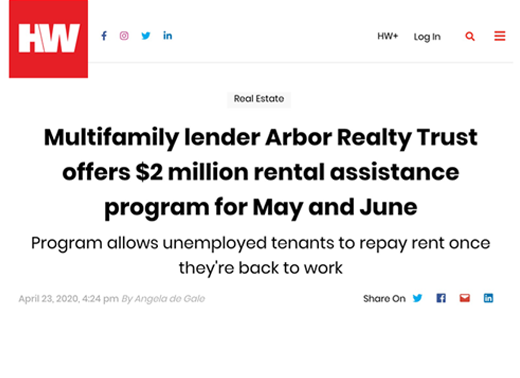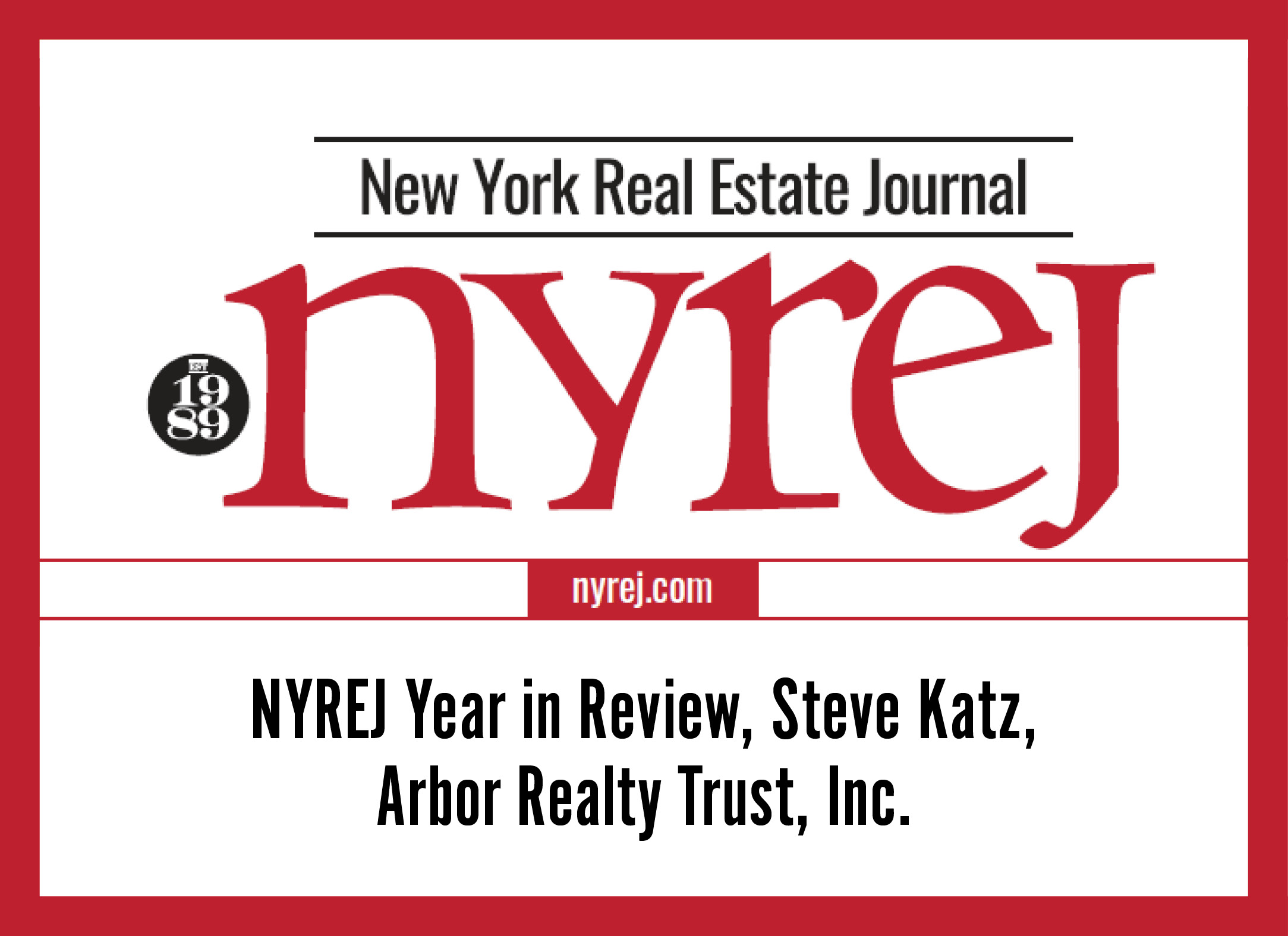Multifamily lender Arbor Realty Trust offers $2 million rental assistance program for May and June
Program allows unemployed tenants to repay rent once they’re back to work
One of Fannie Mae’s top 10 multifamily lenders, Arbor Realty Trust, has launched a $2 million rental assistance program to help tenants who’ve lost their jobs due to COVID-19. The program advances May and June rent payments and allows tenants to repay once they’re re-employed.
Focusing on tenants who live in multifamily properties financed through Arbor, the program not only fills the gap of rent for the tenants but also protects the property owners of those buildings, the company said in a statement.
“The next few months will be very difficult for many renters whose incomes have been significantly impacted by COVID-19,” Arbor’s President and CEO Ivan Kaufman said in an email to HousingWire. “We certainly realize that, and in a proactive effort to supplement government relief efforts and leverage private capital to protect the multifamily ecosystem, we created a unique program that will help thousands of the tenants across the nation.”
Here’s how the program works: Arbor is contributing $1 million to the program and participating property owners will match Arbor’s advances, dollar-for-dollar, totaling $2 million. The property owners must invest at least $10,000 and up to $100,000 in the program. Those property owners then work with their tenants to complete the online application, and the funds are on a first-come, first-serve basis.
To qualify, tenants must:
– Live in a property of an Arbor borrower who agrees to participate in the program and match Arbor’s funds
– Currently pay $2,000 or less in monthly rent
– Be in good standing with consistent on-time payments
– Submit proof of 30% income decline via an employer letter
– Provide documentation of unemployment and/or insurance benefits, government assistance and other forms of income sources
With May’s rent due in a week, an Arbor spokesman said its goal is to review the applications within 48 hours and notify the property owners so they can update the tenants. If approved, the advance payment goes to the property owner to cover the tenant’s rental payment. The tenants then have up to three years to pay back the May and June rent payments at zero interest, the spokesman said.
A company spokesman said the rental assistance program could help as many as 2,000 and 3,000 tenants.






